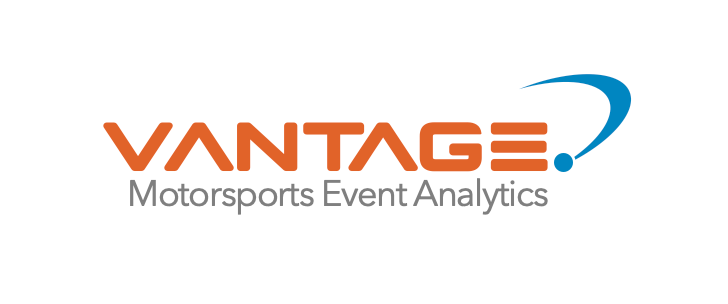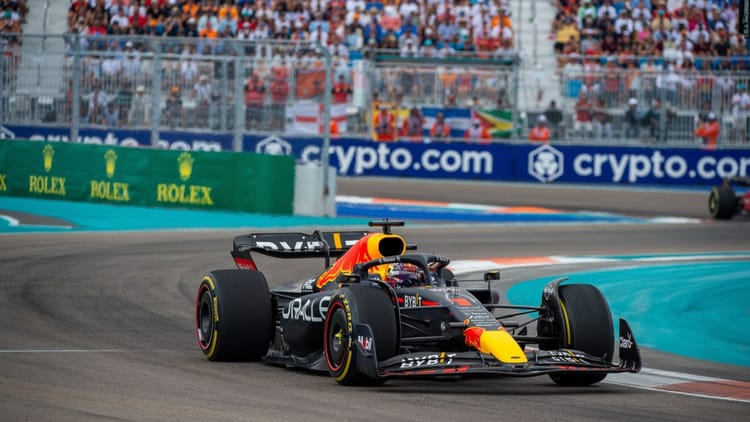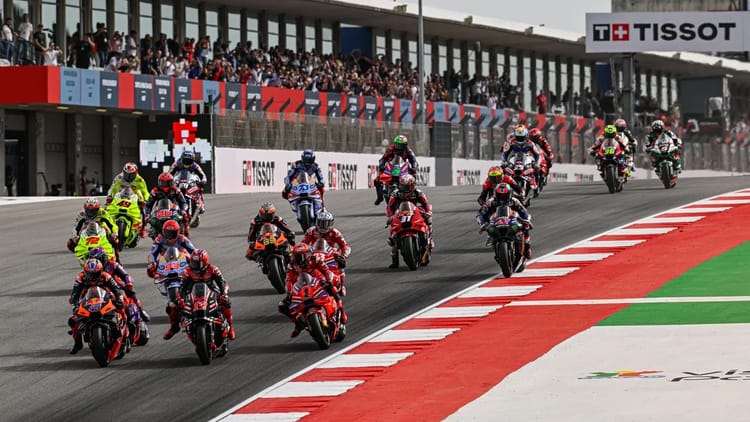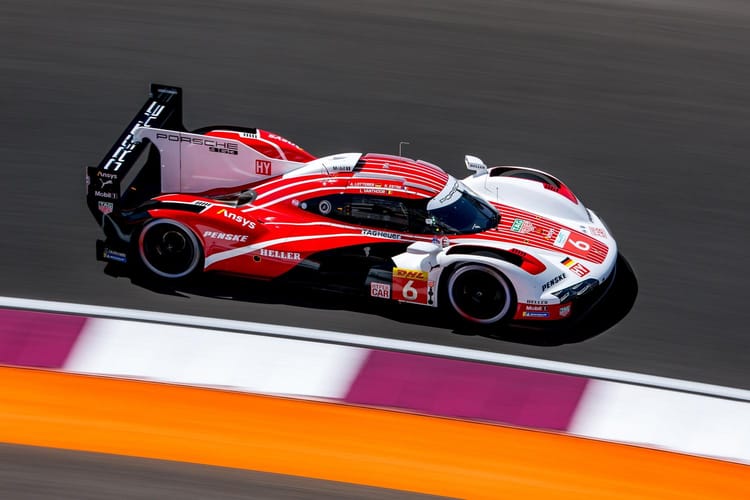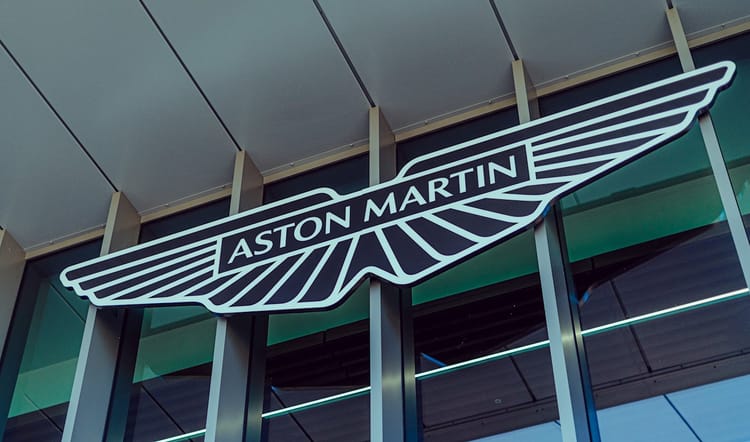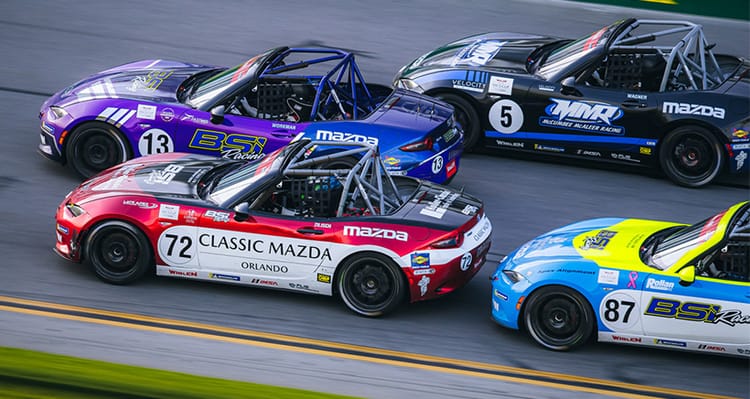IMSA's Porsche Carrera Cup: How Amateurs Fuel Growth
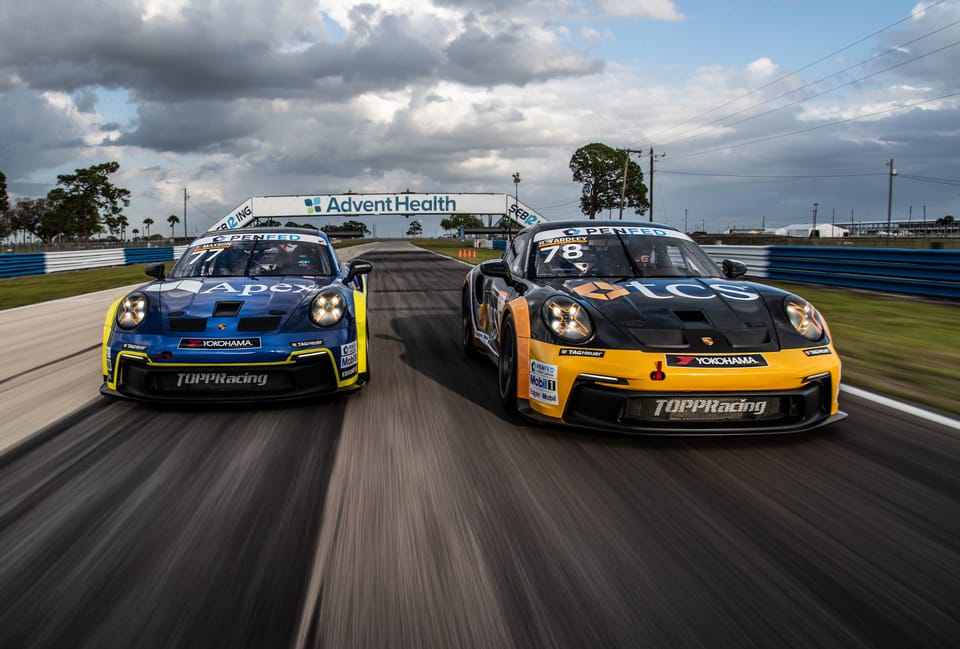
The Porsche Carrera Cup North America continues to thrive in its 2025 season, with events like Road America drawing robust participation. A total of 34 entries competed there, 20 of which were in the amateur-oriented Pro-Am and Masters classes. This significant amateur presence demonstrates how tiered classifications are reshaping the economic landscape of entry-level motorsports.
As a premier one-make series under IMSA's umbrella, the Porsche Carrera Cup North America mandates identical Porsche 911 GT3 Cup cars (Type 992) for all competitors. This parity shifts focus to driver ability, while the class structure—Pro for ages 17-35, Pro-Am for 35 and older, and Masters for 50-plus—accommodates a spectrum of experience levels. The result is a series that welcomes professionals alongside gentlemen drivers, fostering an environment where amateurs can compete meaningfully without facing insurmountable odds.
"At Road America in July 2025, Pro-Am had 12 entries and Masters 8, comprising 59% of the field." (IMSA, July 2025)
These figures reveal amateurs as the backbone of grid size, directly influencing the series' financial health through their contributions.
Entry fees represent a cornerstone of revenue, with options ranging from single-event to full-season commitments. The premium entry package, for instance, encompasses comprehensive access, while additional charges for credentials ensure every participant adds to the funding pool. Amateurs, often self-financed through personal or business means, bear these costs, effectively subsidizing the series' operations and allowing for investments in areas like safety and promotion.
"The Premium Entry Package costs $7,000, with driver credentials at $975." (IMSA, November 2024)
Such pricing tiers reflect a deliberate strategy to maximize income from high-engagement entrants.
The payment timeline further solidifies this participant-funded model. By requiring upfront commitments, organizers secure predictable revenue streams early in the cycle. This approach mitigates financial risks, as amateurs planning their seasons align with these deadlines, ensuring slots are filled and funds are allocated efficiently.
"Full season entry requires 50% payment by January 31, 2025, and the remaining 50% by June 2, 2025." (IMSA, November 2024)
This staggered structure not only aids cash flow but also encourages long-term dedication from amateurs, who view the series as a worthwhile investment in their passion.
To enhance accessibility and diversity, the series incorporates targeted incentives that lower entry barriers for select groups. Talent identification programs offer substantial financial support, drawing in aspiring professionals, while subsidies address underrepresented demographics. These measures expand the participant base without eroding the core amateur-funded foundation, creating a balanced ecosystem where revenue from one group supports opportunities for others.
"The driver shootout winner receives up to $250,000 for 2025-2026 seasons." (IMSA, July 2024)
Scholarships like this bridge amateur and pro worlds, amplifying the series' appeal.
Sponsorship integrations complement participant fees, with partners benefiting from the tiered narrative. Deluxe Corporation, as title sponsor, capitalizes on stories of amateur perseverance alongside pro rivalries, crafting activations that resonate across demographics. This synergy elevates brand exposure, as amateurs' journeys provide authentic content for marketing, further justifying their financial input.
The 2025 schedule plays a pivotal role in this revenue revolution. Eight rounds are strategically paired with five IMSA WeatherTech SportsCar Championship weekends and three Formula 1 events, such as those at Miami and Austin. Amateurs, attracted to these prestigious platforms, contribute fees that underwrite enhanced production values, from live streaming to fan zones. This alignment boosts visibility, attracting more payers and creating a feedback loop of growth.
Amateur classes, particularly Masters, extend participant longevity. Drivers in this category, often with established careers, bring consistent funding and mentorship, stabilizing grids season after season. Their involvement underscores the series' ability to retain revenue-generating entrants, contrasting with more transient pro-focused formats.
This amateur-funded paradigm positions the Porsche Carrera Cup North America as a model of economic resilience. By reducing dependency on volatile sponsorship markets, the series weathers fluctuations better than counterparts. Participant contributions provide a steady base, allowing flexibility in pursuing expansions like international collaborations.
Comparisons with other Porsche Cups worldwide highlight North America's unique adaptations. While European series emphasize youth development, the U.S. version's age-tiered inclusivity taps into a mature amateur market, where professionals from various fields seek competitive outlets. This regional tailoring has led to entry growth, with data from multiple seasons showing increased amateur percentages correlating to revenue upticks.
Teams operating in this environment optimize costs by blending self-funded amateurs with sponsored pros. This hybrid model distributes financial loads, enabling smaller outfits to compete viably. Organizers, armed with predictable fee income, can forecast budgets with precision, allocating surpluses to innovations like data analytics for race strategy.
The broader economic ripple effects are notable. Amateur funding supports talent pipelines, with scholarships creating upward mobility for drivers who might graduate to GT3 or prototype racing. This progression enhances Porsche's ecosystem, drawing international talent and diversifying the field, which in turn attracts global sponsors seeking broad reach.
Stakeholder engagement flourishes under this system. Amateurs gain fulfillment from structured competition, pros from honed skills, and brands from multifaceted narratives. The series' inclusivity also promotes diversity, as seen in female participation incentives, fostering a more representative motorsports community.
Challenges, such as balancing class competitiveness, are addressed through rule tweaks, ensuring amateurs remain engaged without feeling overshadowed. Overall, this tiered approach revolutionizes how entry-level series sustain themselves, proving participant funding can drive long-term viability.
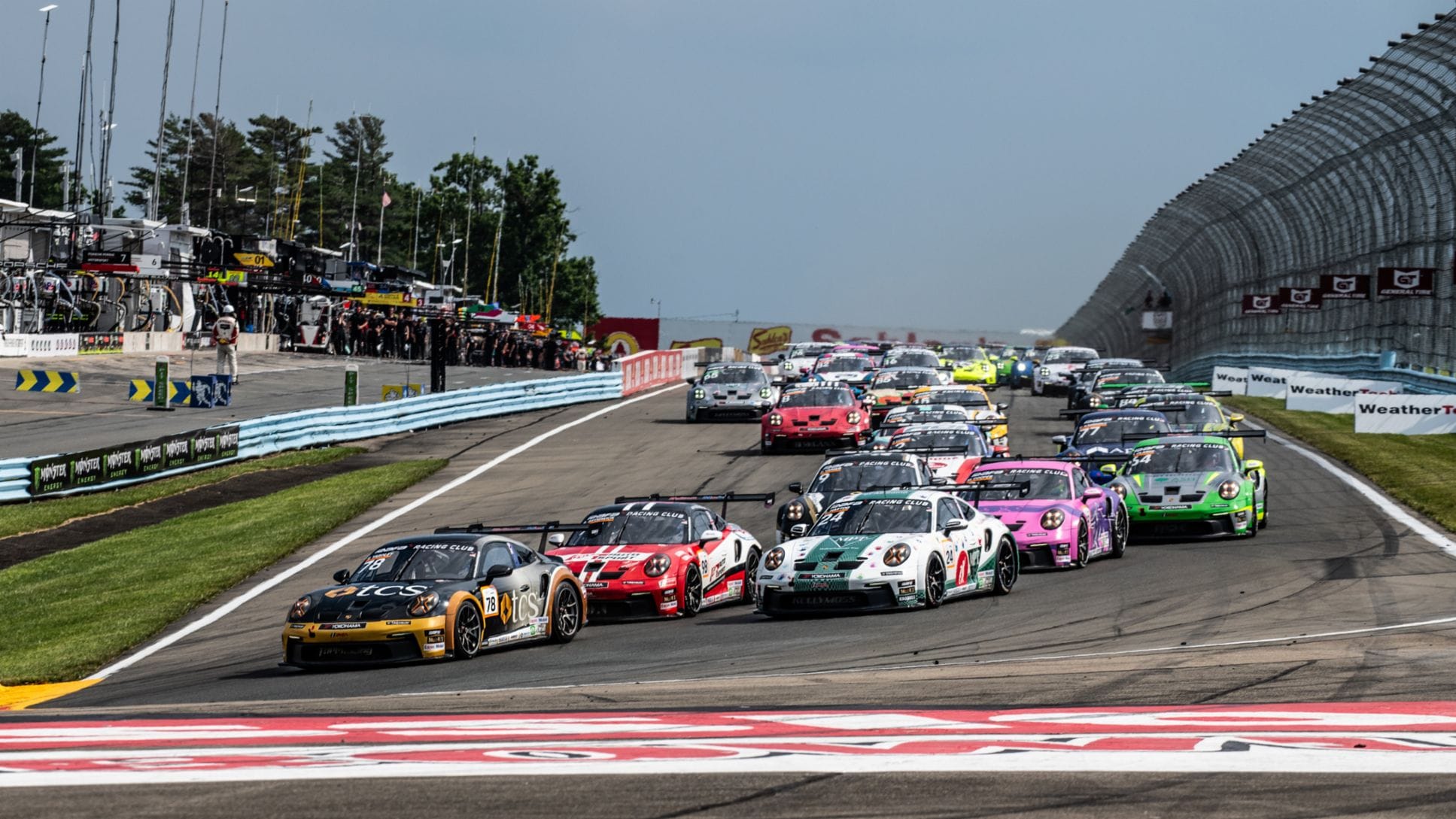
How Amateur Classes Amplify Entry Revenue?
Pro-Am and Masters categories directly inflate revenue through scaled fees. With amateurs covering $7,000 premium packages and $975 credentials, their 59% field share generates substantial income. This self-funding mechanism allows organizers to reinvest in event quality without external pressures.
Age-based tiers lower psychological barriers, encouraging amateurs to commit financially. Costs become justifiable through class-specific achievements, leading to higher uptake and multiplied add-ons like $700 crew memberships.
The payment structure locks in funds early, providing liquidity for operational needs. When amateurs dominate, this creates resilience against economic downturns, as their passion-driven investments prove more stable than sponsor whims.
Data from events like Road America confirms this amplification. Higher amateur ratios correlate with fuller grids, escalating total fees without proportional cost hikes. Incentives, indirectly supported by these revenues, further sustain the cycle.
What Incentives Drive Inclusive Participation?
Subsidies and programs target specific groups to broaden the base. The female initiative reduces costs, promoting gender balance.
"The Porsche Mobil 1 Female Driver Program covers 50% of all entry fees." (Porsche Newsroom USA, March 2025)
This encourages amateur women, expanding the payer pool.
Shootouts offer tangible rewards, motivating cross-class ambition. Up to $250,000 packages provide ROI potential, drawing funded entrants.
Event prestige, via IMSA and F1 alignments, adds intangible value. Amateurs pay for the experience, justifying fees.
Uniform scoring across classes maintains motivation, with points for wins and poles keeping all engaged. Community aspects, like networking, foster loyalty and repeat funding.
Regional adaptations ensure relevance, driving participation in North America's amateur-rich market.
So What?
Stakeholders can leverage the Porsche Carrera Cup North America's tiered model—where 59% amateur entries fund via $7,000 packages and $975 credentials—to identify funding trends for strategic planning, such as teams building rosters with self-funded Pro-Am (35+) and Masters (50+) drivers to share costs and support $250,000 scholarships for pros; sponsors crafting campaigns around inclusive stories from 50% fee subsidies to boost ROI through diverse activations at IMSA-F1 events, and organizers using split payments (50% by January/June) to stabilize flows and grow grids for 10% attendance gains.
Vantage Motorsports Event Analytics provides entry analysis and forecasting tools, enabling refinements like demographic incentives and engagement strategies that turn amateur funding into revenue revolutions—subscribe to our free newsletter for tailored one-make insights and dashboards.
#ProveYourVantage
Sources
- "Porsche Carrera Cup North America Heads to Road America," IMSA, July 30, 2025, https://www.imsa.com/news/2025/07/30/porsche-carrera-cup-north-america-heads-to-road-america/
- "2025 PCCNA Event Entry Fee Schedule," IMSA, November 21, 2024, https://www.imsa.com/wp-content/uploads/sites/32/2024/11/21/25PCCNA_EventEntryFeeSchedule.pdf
- "Female Driver Program Boosts Porsche Single-Make Interest in North America," Porsche Newsroom USA, March 13, 2025, https://newsroom.porsche.com/en_US/2025/motorsport/2025-porsche-female-driver-program-38863.html
- "Porsche Carrera Cup Takes Tight Title Battles to Road America," IMSA, July 31, 2024, https://www.imsa.com/news/2024/07/31/porsche-carrera-cup-takes-tight-title-battles-to-road-america/
- "Porsche Announces 2025 Carrera Cup North America Schedule," IMSA, October 21, 2024, https://www.imsa.com/news/2024/10/21/porsche-announces-2025-carrera-cup-north-america-schedule/
Vantage. Motorsports Event Analytics levels the track for high-potential U.S. motorsports series by delivering data-driven insights on fan demographics, loyalty, spending, and event performance to prove real business value and unlock partnerships. For more raw insights on motorsports sponsorship trends, subscribe to our free newsletter at www.vantagepointmea.com. Unlock the data that drives wins.
